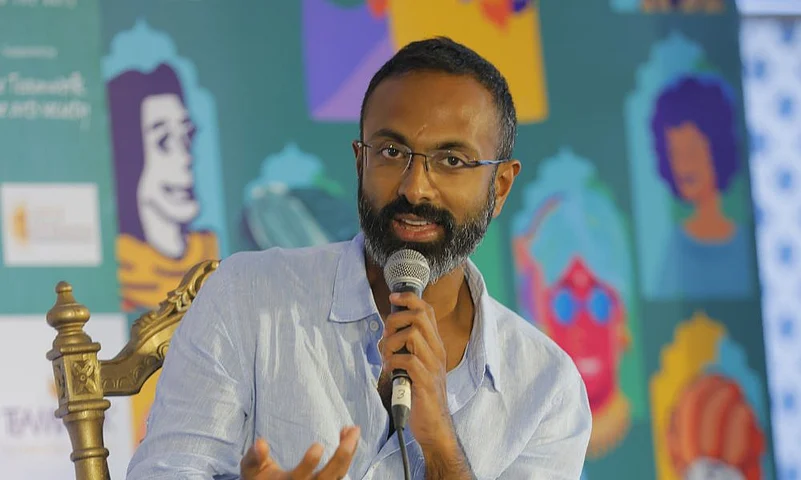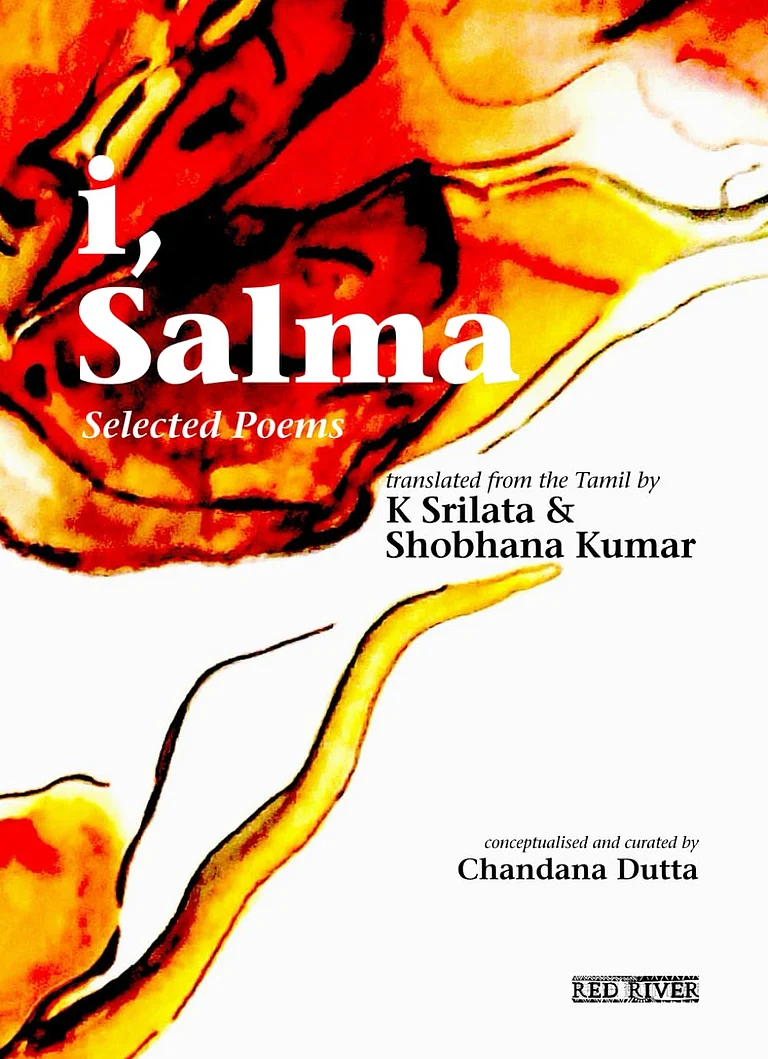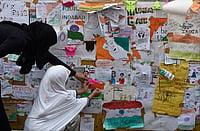Ungainly so, but many moons ago, I wondered what made Joan Didion kill the narrative distance between the reporter and what’s reported. What purpose did it serve, I asked of myself. The antithetical viewpoint—what does it take away if the distance is eliminated—helped bring some clarity. Of late, reading Anjan Sundaram’s Breakup: A Marriage in Wartime (Simon & Schuster) ended this personal dilemma.
As Sundaram was faced with this question to “justify a trip to report” to cover a war in the Central African Republic (CAR), which rarely made headlines, leaving behind his family—he had become a father in 2013, could he have come out from it untransformed? A journey undertaken at an immense personal cost bears recounting what all was at stake. Therefore, it was essential for Didion—in a different setting—and, of course, for Sundaram, to tell it as-is, a report on war, including the reporter as one of its characters. No adjectives can describe the war’s inhumaneness that Sundaram helps unpack for the readers, and no words can convey what he must have felt when he saw his life coming to an end.
A masterful and empathetic narrative written with the utmost clarity of one’s own positionality, Breakup is poised to be a classic. In an interview with Outlook, the journalist and author discusses various nuances of being a wartime correspondent and several other issues facing the journalism industry and the world at large. Edited excerpts:
The structure of the book is interesting on many levels. It begins with family and culminates at a point where this unit of society dissolves and you find yourself on your own, much like in wartime situations you covered in CAR. Of course, the same is reflected in your title. Could you take us through how you arrived—as Breakup, in many ways, is a book about leaving and arriving—at this structure, the possibilities it offered to showcase the deeply concerning reality in CAR, alongside sharing your personal quest of locating yourself in the familial and larger scheme of things?
I feel such an approach and structure offer readers a more honest account of the wartime situations described in Breakup—to simultaneously tell the story of the reporter is to pull back the veil on how stories are told and made.
I saw parallels between the war reporter’s situation and the events the reporter covered. This was fascinating to me because very rarely is the reporter’s personal condition illuminated as a way to understand how and why they chose to report on certain topics, or to understand their motivations for investigating a story and telling it in a certain way. I felt I was in the Central African Republic not by accident, and not entirely because it was a global crisis that merited greater attention in the media. There were personal factors that pulled me there. I wanted to understand these, for myself, and then also present these reasons to readers for a fuller accounting of this investigative, emotional, and personal report.
In Family, you write about your newborn appearing so “fragile, so obviously mortal.” Then, one comes across a scene later where you offer child soldiers cigarettes. I wanted you to consider these two images that you’ve so closely witnessed. What sort of feelings do they evoke now? What renders safety to one, and not the other?
This morning, I received a note that communities in eastern Congo have put in place a secret system to help children escape forced recruitment by local militia groups. This is the reality across much of Central Africa.
Childhood is precarious, and children are recruited, often drugged, and sent to the war’s frontlines, where they are valued for their fearlessness in combat, according to generals whom I’ve interviewed. Children are also feared. Unfortunately, this leads to a certain degree of dehumanisation of children, and the roles are switched.
While I want to protect my newborn and feel responsible for her safety, I fear the child soldier, who has power over me in his or her territory, and I want to ensure that the child soldier will protect me. In order to keep myself safe, I treat the child soldier like an adult, obeying the child’s commands—including one to offer a cigarette.
You, along with Lewis, were faced with several situations in which being hyper-aware didn’t help, but intuition worked. Also: though there would definitely be a trust deficit at some level, there were moments where a sense of camaraderie and community was very much a possibility, reality. Would you like to reflect on what may have caused its formation?
In general, trust is crucial in order to travel through war zones. I trusted Lewis with my life. I also had to trust in strangers, asking them whether it was safe to travel further into the war, or if I should wait. Without such almost blind and instinctive trust, war reporting is impossible to conduct safely. Trust and humility go together. The war reporter can’t be stubborn and gung-ho about travelling into conflict. It’s a tentative journey, with many diversions and digressions. This human aspect of war reporting is an essential skill that can make the difference between life and death.
Given there is no mechanism to fact-check things when anything you hear could be real or a rumour, then how do you confirm news in a place like CAR?
Rumours have the power of facts if people are willing to act on them. In the Central African Republic, the Christian majority began to believe that Muslim civilians were a threat. This was false, of course, but the Christian majority acted on their belief and perpetrated an ethnic cleansing of the Muslims from the country. So, the important thing is perhaps not to know if something is true or false, but to discern what people believe to be true or false, and act upon it, to transform the world around them. This transformation is what I report on.
In Betrayals, you mention how the Commander retorted with a comparison of the situation at hand with the US’s attack on Osama Bin Laden. Then, you seek permission from him to include this in your story for the magazine. I was wondering if you could share how you make such decisions: what to ask before putting it in a story? And related to that is this question: when does a reporter stop listening? And what eventually makes it to the story—could you help share a few factors that allow you to make this decision?
That was just before the moment when I came closest to death. I asked the commander if I could include this story more as a performance, to show I was listening to him. I was stuck in a rebel zone and the commander’s troops could very easily have killed me. I needed to perform my empathy to the commander, so he stopped seeing me as a spy and a threat.
Sample this: So the war had set the pigs free. And this, what Lewis had said: People are dying, and you’re worried about the birds. It was heartening to read the pigs scene and while ‘free’ was used as an adjective, I was thinking of it as a verb while re/reading the sentence/paragraph—its subliminal reference to everyone’s situation where you were at perhaps? Then, perhaps humans are hard-wired to imagine themselves at the top of the scheme of things, which perhaps made Lewis say what he did. So, I was wondering if I am reading more into the pigs scene than you wanted to highlight, and if it was your intention (with the second sentence) to share that if we discriminate between species and place more importance in one over the other, then it won’t take us much time—and it hasn’t it seems—to discriminate within and creating divisions ... people of a faith over others?
You touch upon something important. In CAR, the Muslims were dehumanised, likened to animals, and then killed. In nearly every instance of the dehumanisation of a people, whether in the Holocaust, other genocides or ethnic cleansings, once people are likened to animals or pests, the logic of extermination becomes automatic. If we treated animals with greater respect, we would likely treat fellow humans with greater empathy as well.
I am wondering if your ex-wife had the opportunity to read your manuscript and what sort of conversations you’ve had—if you happened to—regarding what to keep, explore, or keep out from the ambit of this book?
My ex-wife read this book shortly before it was published and called me up to say, “Thank you for portraying me as nicer than I was at the time.” I wanted, at the end of the book, for the reader to question me more than her. If a reader is left with questions about her, then I’ve failed, because she isn’t the book’s author. I tried to express the reasonableness of her position as far as I could, and open up questions regarding my own choices and behaviour. This was the narrative’s purpose, and the call from my ex-wife told me that I had perhaps succeeded.
Would you like to share whose works you like to read—reporting in general, and any particular book(s) you had by yourself while working on Breakup?
Before leaving for the Central African Republic, I wrote to my publisher at the time, Sonny Mehta, that I wanted to write a book that was as “pure, elemental, and wild” as Ryszard Kapuściński’s Another Day of Life, which I carried with me as I travelled through the Central African Republic. Sonny had edited Kapuściński, and when I’d sent him a draft of my first book, he had told me my writing reminded him of Kapuściński, and that he wanted to publish me.
Saurabh Sharma is a Delhi-based queer writer and freelance journalist. On Instagram/X (formerly Twitter): @writerly_life.



























